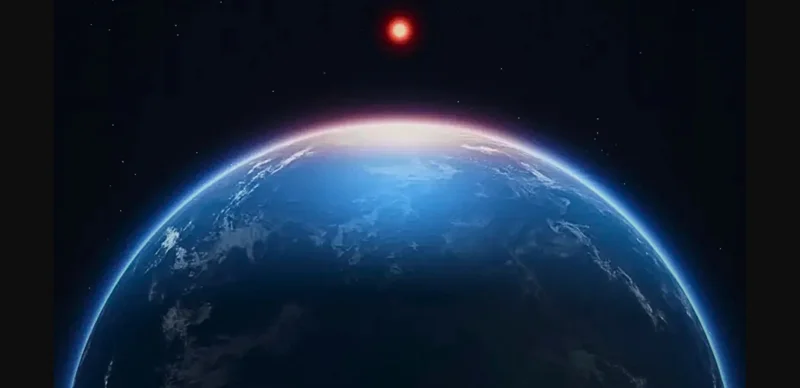Cambridge scientists found possible signs of life on a distant planet
Scientists from the University of Cambridge have discovered a potential sign of life on a planet 124 light years away, thanks to data from NASA’s James Webb Space Telescope (JWST), reports a Kazinform News Agency correspondent.

The planet, K2-18b, orbits within its star’s “habitable zone,” where liquid water could exist—raising hopes that it might support life.
In a study published in The Astrophysical Journal Letters, researchers reported detecting the chemical fingerprints of dimethyl sulfide (DMS) and dimethyl disulfide (DMDS) in the planet’s atmosphere.
“On Earth, DMS and DMDS are only produced by life, primarily microbial life such as marine phytoplankton,” a Cambridge press release explained. While the origin of these chemicals on K2-18b is still uncertain, the findings are “the strongest evidence yet that life may exist on a planet outside our solar system.”
This is not the first time K2-18b has made headlines. In 2023, researchers detected methane and carbon dioxide in its atmosphere—carbon-based molecules linked to living organisms. But the detection of DMS and DMDS takes the possibility a step further.
Professor Nikku Madhusudhan, who led the research, is cautiously optimistic. “It’s important that we’re deeply sceptical of our own results, because it’s only by testing and testing again that we will be able to reach the point where we’re confident in them,” he said. He also noted, “This is the strongest evidence yet there is possibly life out there. I can realistically say that we can confirm this signal within one to two years.”
While the chance of the findings being a statistical fluke is only 0.3%, that’s still not low enough to meet the strict standard for a scientific discovery. Nonetheless, the team remains hopeful.
“The amount we estimate of this gas in the atmosphere is thousands of times higher than what we have on Earth,” Madhusudhan added. “So, if the association with life is real, then this planet will be teeming with life.”
Earlier, it was reported that the European Space Agency (ESA) has revealed new discoveries from its Gaia mission, identifying two rare objects in our galaxy.

